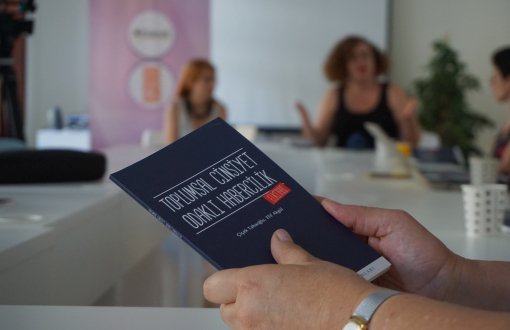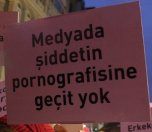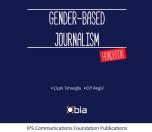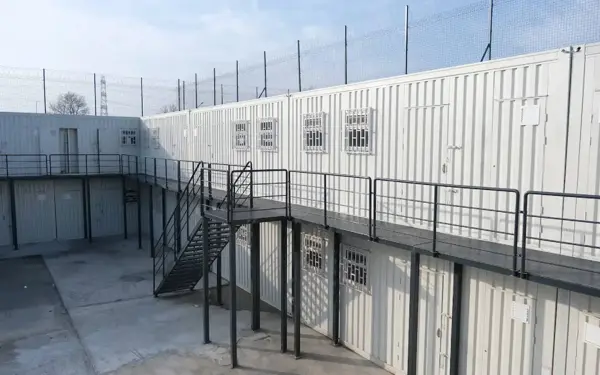Click to read the article in Turkish/Kurdish
bianet introduced its “Gender-Based Journalism Handbook” with a press meeting organized at AtölyeBİA today (June 29).
After speech of BİA Training Consultant Prof. Dr. Sevda Alankuş, who wrote the preface of the book, book’s authors Çiçek Tahaoğlu and Elif Akgül gave information about the handbook.
The handbook is at the bookstores as of today. Furthermore, you can access to the book on BİA Library in Turkish, Kurdish and English.
Alankuş: This book is a product of bianet’s experiences
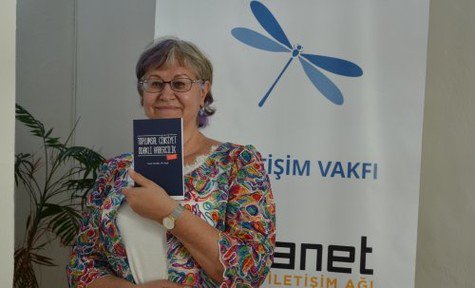
In the event which started with BİA training consultant and Dean of Faculty of Communication at Kadir Has University Prof. Dr. Sevda Alankuş’s speech, Alankuş gave information about the process of how the handbook was prepared.
Stressing that similar projects have been undertaken since bianet was founded, Alankuş said, “Most of these projects are results of the trainings we provide, and the book is a product of all our experience”.
“During this period, we’ve been to around 10 cities in Turkey, came together with journalists, journalism students and organized gender-based journalism workshops. With the accumulation generated by these workshops as well as and women-based journalism perspective carried out by Çiçek Tahaoğlu and Elif Akgül for years at bianet, the perspective has expanded and blended inside bianet over years and been formed within these workshop trainings. It has taken a new form with Kaos GL’s contributions and consequently, our book has come into existence”.
Akgül: So that everyone can look through gender-based perspective
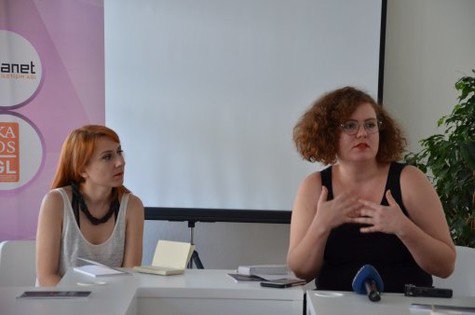
bianet’s former freedom of expression editor Akgül explained why there is a need for this handbook. Akgül underscored that lacking of representation of women and LGBTI+ in news centers and managerial staff reflects in news items as well. Akgül said:
“News about women and LGBTI+ are usually left for journalist women who are sensitive about it. Most of the editors and reporters say ‘I don’t understand these matters’ and avoid making these news report. We wrote this book so there won’t be an excuse such as ‘I don’t know how to look through gender-based perspective’”.
Tahaoğlu: An alternative to reverse masculine narrative
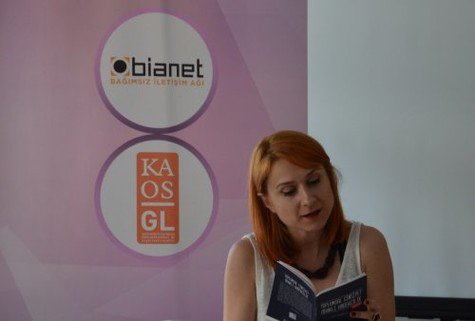
bianet women’s and LGBTI editor Tahaoğlu explained how she prepared the guideline:
“We actually put down bianet’s gender-based journalism practice on paper. As we stated in the book, gender-based journalism is a part of rights-based journalism preference. We hope that a guideline about how this preference will be put into practice will pave the way for equal representation in the media.
“With this book, we tried to give advices on how widespread masculine narrative will be reversed, and introduce an alternative for journalism”.
What is there in the book?
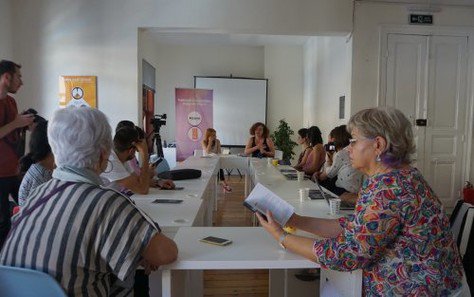
The handbook is the joint piece of bianet editors Çiçek Tahaoğlu and Elif Akgül. The book contains chapters such as “When do and don not women and LGBTI+ individuals become news?”, “Communication with news sources”, “14 items to avoid sexism in news making”, “Experiences from bianet news center”.
In addition to that, the points which journalists should consider when they communicate with civil society, news subjects that are subjected to violence and groups that are subjected to discrimination in the society.
About the project
In Gender-Based Journalism Handbook, the approach whose framework was set by Women Based Journalism published by IPS Communication Foundation Publications has been enriched by bianet’s journalism practice in the advancing years and developed by LGBTI+ based journalism.
First edition of Women-Based Journalism prepared by Sevda Alankuş was published in October 2007 and its revised second edition was published in December 2012.
The handbook is being released from April 2016 to June 2018 as part of Gender-Based Journalism Workshops and Online Library Project, which is realized by the financial aid of European Instrument for Democracy and Human Rights (EIDHR).
The project’s supervisor was Sevda Alankuş and coordinator was Öznur Subaşı. Free Journalists’ Association (ÖGC), which we started with the project, was shut down by a statutory decree. Local women’s and LGBTI organizations’ representatives, journalists, academics and communication faculty students came together in the workshops that were held together with Kaos GL as part of the project in İstanbul, Mersin, Bursa, İzmir, Eskişehir, Trabzon, Diyarbakır, Muğla, Edirne and Dersim.
We came together with 269 journalists, NGO representatives, communication faculty students and academics in the workshops that were organized from October 2016 to 2017. As it always has been, these workshops as well were a process of mutual learing. (HA/HK/TK)





